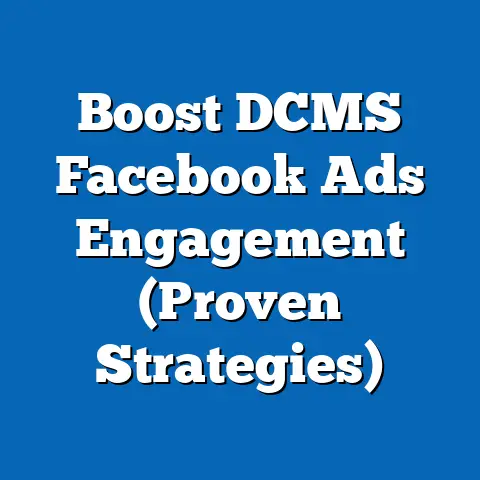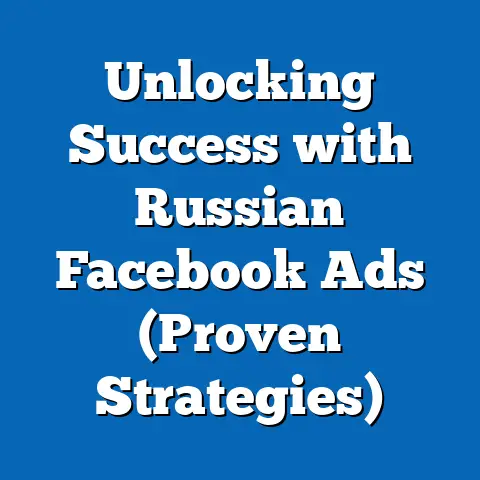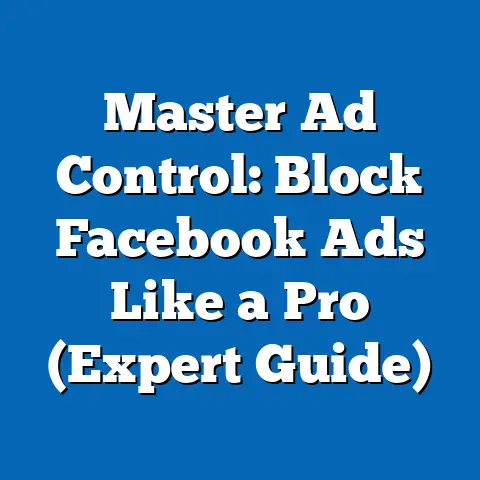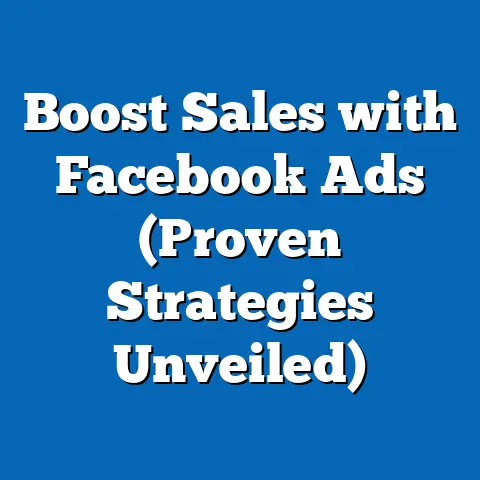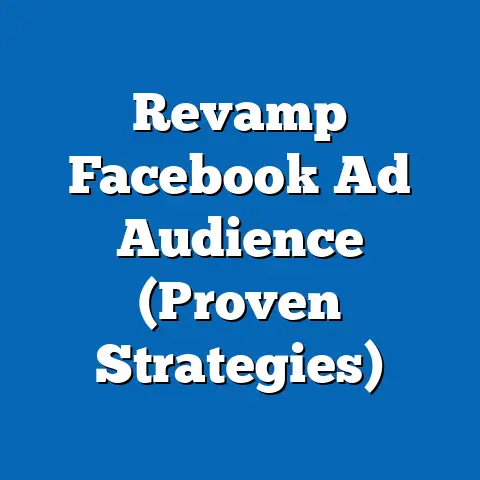Does Facebook Ads Charge VAT? (Essential Insights Unveiled)
As a digital marketing specialist with years of experience navigating the ever-changing landscape of online advertising, I’ve seen firsthand how crucial targeted advertising is for the luxury market.
High-end brands rely on platforms like Facebook Ads to reach affluent consumers, crafting sophisticated campaigns that resonate with their discerning tastes.
But behind the glamorous visuals and perfectly curated messaging lies a complex web of financial considerations, and one of the most significant is Value Added Tax (VAT).
Section 1: Understanding VAT
Value Added Tax, or VAT, is a consumption tax levied on the value added at each stage of the supply chain, from initial production to the final sale to the consumer.
It’s primarily used in the European Union and many other countries around the world, though it’s worth noting the United States doesn’t have a VAT system.
Instead, they utilize a sales tax.
In essence, VAT is a percentage-based tax added to the price of goods and services.
Businesses collect VAT on their sales and pay VAT on their purchases.
The difference between the VAT collected and the VAT paid is remitted to the government.
For businesses, especially those operating in the luxury market, understanding VAT is paramount.
The luxury sector often deals with high-value items, meaning VAT can represent a substantial portion of their costs.
Properly managing VAT is crucial for:
- Maintaining Profit Margins: Inaccurate VAT calculations can erode profit margins.
- Ensuring Compliance: Failure to comply with VAT regulations can result in penalties and legal issues.
- Strategic Pricing: VAT implications need to be factored into pricing strategies to remain competitive.
The complexities of VAT can be daunting, but a solid grasp of the fundamentals is essential for any business, particularly those in the luxury sector, to ensure financial stability and regulatory compliance.
Takeaway: VAT is a consumption tax applied at each stage of the supply chain, with significant financial implications for businesses, especially luxury brands.
Section 2: Facebook Ads and VAT: The Basics
Facebook Ads, now part of Meta, is a powerful advertising platform offering a wide range of ad formats, sophisticated targeting options, and diverse pricing models.
Brands can create visually appealing ads, precisely target their desired audience based on demographics, interests, and behaviors, and choose from various payment structures like cost-per-click (CPC) or cost-per-impression (CPM).
So, where does VAT fit into all of this?
Facebook, being a multinational corporation, is subject to VAT regulations in many countries.
When you run ads on Facebook, the platform typically charges VAT depending on your location and, in some cases, your VAT registration status.
Here’s a breakdown of Facebook’s VAT position:
- VAT Charges: In many countries, particularly within the EU, Facebook is required to charge VAT on advertising costs.
- VAT Registration: If you are a business registered for VAT, you may be able to provide your VAT identification number to Facebook.
This allows Facebook to issue invoices that include VAT, which you can then reclaim as input tax. - No VAT in the US: Facebook Ads are not subject to VAT in the United States.
Geographical considerations are crucial.
The rules surrounding VAT application in Facebook Ads vary significantly depending on where your business is located.
- European Union: Businesses within the EU are generally charged VAT on Facebook Ads, but they can reclaim it if they are VAT-registered.
- United Kingdom: Post-Brexit, the UK has its own VAT rules, which are similar to the EU regulations in many respects.
- Rest of the World: The application of VAT depends on the specific country’s tax laws.
Some countries may have VAT agreements with Facebook, while others may not.
Takeaway: Facebook Ads are generally subject to VAT charges, particularly in the EU and the UK.
The specific application of VAT varies based on your location and VAT registration status.
Section 3: VAT Implications for Luxury Brands Using Facebook Ads
Luxury brands face unique challenges when it comes to VAT and Facebook Ads.
These brands often operate with higher advertising budgets and target affluent consumers across multiple regions, making VAT management a complex undertaking.
One of the most significant impacts of VAT is on pricing strategies.
Luxury brands must factor in VAT when setting prices for their products and services.
If they fail to account for VAT correctly, they risk eroding their profit margins.
Another area affected is advertising budgets.
VAT can increase the overall cost of running Facebook Ads.
For example, if a luxury brand allocates €10,000 for a Facebook Ads campaign and VAT is charged at 20%, the actual cost becomes €12,000.
This can reduce the reach and impact of the campaign if not properly accounted for in the initial budget.
VAT also affects the overall ROI of advertising campaigns.
By accurately tracking and reclaiming VAT, luxury brands can improve their ROI and ensure that their advertising investments are yielding the desired results.
Here are some real-world examples of luxury brands navigating VAT issues on Facebook:
- Luxury Watch Brand: A Swiss luxury watch brand running Facebook Ads in France had to understand the local VAT regulations to ensure compliance.
They worked with a tax advisor to correctly account for VAT in their pricing and advertising strategies. - High-End Fashion Retailer: An Italian high-end fashion retailer running Facebook Ads across the EU provided their VAT identification number to Facebook, allowing them to reclaim VAT on their advertising expenses.
- Luxury Hotel Chain: A global luxury hotel chain running Facebook Ads in multiple countries faced the challenge of managing different VAT rates.
They implemented a centralized VAT management system to track and reclaim VAT across all their advertising campaigns.
Takeaway: VAT significantly impacts pricing strategies, advertising budgets, and ROI for luxury brands using Facebook Ads.
Proper VAT management is essential for maintaining profitability and compliance.
Section 4: Case Studies
To illustrate how luxury brands can successfully manage VAT charges related to their Facebook Ads, let’s examine a few case studies.
Case Study 1: French Perfume House
- Brand: A renowned French perfume house known for its exquisite fragrances and high-end positioning.
- Challenge: The brand wanted to expand its reach within the EU using Facebook Ads but needed to ensure VAT compliance across different member states.
- Strategy:
- VAT Registration: The perfume house registered for VAT in several key EU countries where they had a significant customer base.
- VAT-Inclusive Pricing: They adopted a VAT-inclusive pricing strategy, ensuring that the final price visible to customers included VAT.
- Detailed Invoicing: They provided Facebook with their VAT identification numbers, enabling them to receive detailed invoices with VAT breakdowns.
- Tax Advisor: They engaged a tax advisor specializing in VAT to manage compliance and reclaim VAT effectively.
- Outcome:
- Improved Compliance: The perfume house achieved full compliance with VAT regulations across the EU.
- Enhanced ROI: They were able to reclaim VAT on their advertising expenses, improving their overall ROI.
- Transparent Pricing: The VAT-inclusive pricing strategy ensured transparency for customers, building trust and brand loyalty.
- VAT Registration: The perfume house registered for VAT in several key EU countries where they had a significant customer base.
- VAT-Inclusive Pricing: They adopted a VAT-inclusive pricing strategy, ensuring that the final price visible to customers included VAT.
- Detailed Invoicing: They provided Facebook with their VAT identification numbers, enabling them to receive detailed invoices with VAT breakdowns.
- Tax Advisor: They engaged a tax advisor specializing in VAT to manage compliance and reclaim VAT effectively.
- Improved Compliance: The perfume house achieved full compliance with VAT regulations across the EU.
- Enhanced ROI: They were able to reclaim VAT on their advertising expenses, improving their overall ROI.
- Transparent Pricing: The VAT-inclusive pricing strategy ensured transparency for customers, building trust and brand loyalty.
Case Study 2: British Luxury Car Manufacturer
- Brand: A prestigious British luxury car manufacturer targeting affluent consumers globally.
- Challenge: The brand ran Facebook Ads in multiple countries, each with different VAT rates and regulations.
- Strategy:
- Centralized VAT Management: They implemented a centralized VAT management system to track and reclaim VAT across all their advertising campaigns.
- Geographical Targeting: They used Facebook’s geographical targeting options to tailor their ads to specific regions, ensuring compliance with local VAT laws.
- VAT-Exempt Status: In some regions, they leveraged their VAT-exempt status for specific types of advertising campaigns.
- Training: They provided comprehensive training to their marketing team on VAT regulations and compliance.
- Outcome:
- Efficient VAT Tracking: The centralized VAT management system streamlined the tracking and reclaiming process.
- Reduced Errors: The geographical targeting and VAT-exempt status strategies minimized errors and ensured compliance.
- Cost Savings: The brand achieved significant cost savings by reclaiming VAT on their advertising expenses.
- Centralized VAT Management: They implemented a centralized VAT management system to track and reclaim VAT across all their advertising campaigns.
- Geographical Targeting: They used Facebook’s geographical targeting options to tailor their ads to specific regions, ensuring compliance with local VAT laws.
- VAT-Exempt Status: In some regions, they leveraged their VAT-exempt status for specific types of advertising campaigns.
- Training: They provided comprehensive training to their marketing team on VAT regulations and compliance.
- Efficient VAT Tracking: The centralized VAT management system streamlined the tracking and reclaiming process.
- Reduced Errors: The geographical targeting and VAT-exempt status strategies minimized errors and ensured compliance.
- Cost Savings: The brand achieved significant cost savings by reclaiming VAT on their advertising expenses.
Takeaway: These case studies highlight the importance of VAT registration, VAT-inclusive pricing, centralized VAT management, and expert advice in successfully managing VAT charges related to Facebook Ads.
Section 5: Conclusion and Future Considerations
In conclusion, understanding the relationship between VAT and Facebook Ads is crucial for luxury brands.
VAT can significantly impact pricing strategies, advertising budgets, and ROI, making proper VAT management essential for maintaining profitability and compliance.
As digital advertising continues to evolve, it’s essential for luxury brands to stay informed about tax regulations and adapt their strategies accordingly.
Here are some forward-looking considerations:
- Evolving Tax Laws: Tax laws are constantly changing, so it’s essential to stay updated on the latest regulations.
- Technological Solutions: Emerging technologies like AI and blockchain may offer new solutions for VAT management in the future.
- Expert Advice: Engaging with tax advisors and financial experts is crucial for navigating the complexities of VAT.
Luxury brands can continue to leverage Facebook Ads effectively by understanding and managing VAT complexities.
By staying informed, implementing best practices, and seeking expert advice, these brands can ensure that their advertising investments yield the desired results while remaining fully compliant with tax regulations.
As I continue to work in the digital marketing field, I am committed to staying abreast of these changes and helping luxury brands navigate the ever-evolving landscape of online advertising.
The key is to be proactive, informed, and adaptable, ensuring that VAT is not a barrier but a manageable aspect of your marketing strategy.

